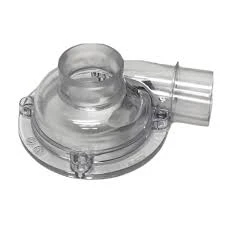Mobile:+86-311-808-126-83
Email:info@ydcastings.com
brass impeller
The Importance of Brass Impellers in Modern Engineering
Brass impellers are essential components in various mechanical systems, playing a crucial role in fluid dynamics, particularly in pumps and turbines. Their unique properties and advantages make them an ideal choice for many applications. This article explores the characteristics of brass impellers, their manufacturing processes, applications, and the benefits they offer in modern engineering.
Understanding Brass Impellers
An impeller is a rotating component in a machine that imparts energy to the fluid through the mechanical action of rotating blades. Brass, an alloy of copper and zinc, is often used in the production of impellers due to its favorable properties. The typical composition of brass can vary, but it usually contains around 60% copper and 40% zinc. This composition gives brass its excellent corrosion resistance, high ductility, and good machinability.
Manufacturing Process
The manufacturing of brass impellers generally involves several key steps casting, machining, and finishing.
1. Casting The first step is to cast the impeller shape using molten brass. Various casting processes can be employed, including sand casting, die casting, and investment casting, each with its specific benefits depending on the design complexity and production volume.
2. Machining Once the initial shape is cast, the impeller undergoes machining to achieve the precise dimensions and tolerances required. Processes such as milling, turning, and drilling are commonly used to refine the impeller to its final specifications.
3. Finishing The final stage involves surface treatment and finishing processes to enhance the impeller’s corrosion resistance and aesthetic appearance. Techniques such as polishing, plating, or coating are used, depending on the intended application of the impeller.
Applications of Brass Impellers
Brass impellers are utilized in a variety of applications across different industries
. Some of the primary applications include- Marine Engineering Due to their resistance to seawater corrosion, brass impellers are widely used in marine pumps that require long-lasting durability and reliability.
brass impeller

- HVAC Systems In heating, ventilation, and air conditioning systems, brass impellers are used in water pumps and circulators that require efficient fluid movement.
- Automotive Industry Brass impellers are also found in automotive cooling systems, where they help keep engines at optimal temperatures by circulating coolant efficiently.
- Industrial Machinery Many manufacturing processes involve pumps that utilize brass impellers for fluid transfer, due to their strength and resistance to wear.
Advantages of Brass Impellers
The use of brass impellers offers several key advantages over other materials
1. Corrosion Resistance Brass has a natural resistance to corrosion, making it ideal for applications in harsh environments, including those involving water, chemicals, and saline solutions.
2. Durability The robust nature of brass provides significant wear resistance, ensuring that the impeller maintains its shape and performance over time, reducing maintenance costs and replacement frequency.
3. Thermal Conductivity Brass has excellent thermal conductivity, which helps dissipate heat efficiently in fluid transfer applications, thereby enhancing performance.
4. Machinability Brass is easy to machine, allowing for the production of complex designs and custom solutions that meet specific engineering needs.
5. Aesthetic Appeal The attractive gold-like appearance of polished brass makes it a preferred choice for decorative applications, blending functionality with visual appeal.
Conclusion
Brass impellers represent a critical component in many engineering applications. Their unique properties, including corrosion resistance, durability, and machinability, make them ideal for use in a wide range of industries, from marine engineering to HVAC systems. As technological advancements continue to evolve, the demand for reliable and efficient impeller solutions will likely increase, ensuring that brass will remain a material of choice in the engineering landscape for years to come. With their ability to meet the rigorous demands of modern applications, brass impellers stand as a testament to the convergence of tradition and innovation in engineering design.
-
Why Should You Invest in Superior Pump Castings for Your Equipment?NewsJun.09,2025
-
Unlock Performance Potential with Stainless Impellers and Aluminum End CapsNewsJun.09,2025
-
Revolutionize Your Machinery with Superior Cast Iron and Aluminum ComponentsNewsJun.09,2025
-
Revolutionize Fluid Dynamics with Premium Pump ComponentsNewsJun.09,2025
-
Optimizing Industrial Systems with Essential Valve ComponentsNewsJun.09,2025
-
Elevate Grid Efficiency with High-Precision Power CastingsNewsJun.09,2025











